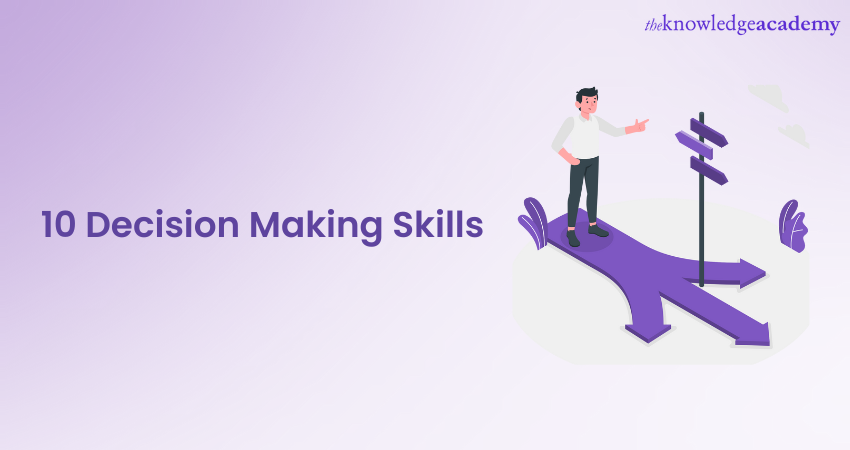Bridging the Gap: Moving from Analysis to Decision Making

In today’s fast-paced environment, the capability to make sound decisions is now critical than ever. Whether it be in business, personal affairs, or during stressful situations, the choices we make can greatly impact our outcomes. Yet, many people struggle with making decisions, often feeling overwhelmed by the abundance of information available or hindered by anxiety of making the incorrect choice. Closing the gap from analysis to decisive decision is essential for success, and enhancing decision-making skills can lead to more confident and timely results.
Mastering the skill of effective decision-making demands understanding various methods and frameworks that accommodate both instinctive and analytical approaches. From learning how to make better decisions under stress to recognizing the role of EQ, cultivating these skills can enable individuals to manage challenges successfully. In this article, we will explore proven techniques, the science behind effective decisions, and strategies for overcoming frequent pitfalls like mental exhaustion and paralysis by analysis, all aimed at helping you make decisions that reflect your objectives and values.
Strategies for Successful Decision Making
Effective decision-making commences with the identification of well-defined goals. To make informed choices, you must understand what end state you desire. Take time to define your objectives, as this focus will guide your thought process. Whether you are weighing individual choices or corporate decisions, knowing what you want to accomplish helps you discard options that are misaligned with your goals.
Then, consider utilizing decision-making frameworks that provide structure to your assessments. These frameworks can help map out options, assess their pros and cons, and analyze potential outcomes. Techniques like the SWOT framework (advantages, weaknesses and challenges, opportunities, threats) can aid in comprehending the ramifications of your selections. By organizing decision fatigue , you enhance your ability to make informed choices reinforced by logic rather than impulse.
In conclusion, remember the importance of emotional awareness in decision-making. Being mindful of your emotional state and understanding how they influence your choices can greatly improve the caliber of your decisions. Adopt mindfulness to manage your emotions, especially under tension. An enhanced awareness of both your emotional state and those of your peers can foster better collaboration in collective situations, leading to more stronger consensus and eventually better outcomes.
Psychological Insights for Enhanced Decision-Making
Comprehending the science behind the decision process can greatly enhance your ability to choose wisely. One crucial insight is the notion of biases in cognition, which are methodical errors in thinking that affect our decisions. Being aware of biases like confirmation bias or anchor bias can assist you recognize when your judgment may be clouded. By proactively challenging your preconceptions and pursuing diverse viewpoints, you can diminish the impact of these biases and make more educated decisions.
Emotional intelligence plays a critical role in how we navigate decisions, especially in high-pressure situations. Acknowledging and managing how to make decisions faster can avoid anxiety and overpowering your judgment. When you engage in being present and cultivate compassion for others' viewpoints, you can address decisions with a clearer mind and a more balanced perspective. This awareness of emotions not only helps in personal decision-making but also strengthens group dynamics when collaborative choices are necessary.
Another crucial aspect is the capacity of intuition, which can be a beneficial tool in the process of making decisions. While analytical thinking is crucial for assessing data, intuition allows for quick evaluations based on past experiences and gut feelings. Combining intuition with rational thought can lead to better decision choices. Conditioning your mind to recognize when to believe in your intuition and when to depend on careful analysis can ultimately improve your decision-making skills and result in superior results.
### Techniques in Confident Decision Making
To make assured decisions, it is essential to employ a combination of analytic strategies and emotional awareness. Start by outlining an explicit decision-making framework which aligns to your beliefs and aims. This might include defining the important factors that are most significant to you, evaluating the pros and cons of each option, plus thinking about the extended effects of your choices. Having a systematic method, you lessen doubt plus build a firm ground to make educated decisions.
Another efficient method is to utilize the technique of pausing. When encountering critical choices, taking a moment to take a breath and consider can produce more clarity. https://routemoon24.bloggersdelight.dk/2025/04/30/clarity-in-decision-making-practical-strategies-to-consider/ allows you to separate from instant emotional reactions and assess alternatives with an objective frame of mind. Integrate techniques like being present or short periods of meditation into the way you make decisions, because these can elevate thought clarity plus lessen stress, allowing you to approach choices with greater confidence.
Finally, develop the habit of learning from your decisions, regardless of their outcomes. Reviewing previous results offers meaningful lessons to shape your next decisions constructively. Cultivate reflective practices, thinking about what succeeded and what could have been improved in your approach to decisions. By moving away from the anxiety of incorrect choices and focusing instead on growth and learning, you will foster a more confident approach towards making decisions across all aspects of your life.

